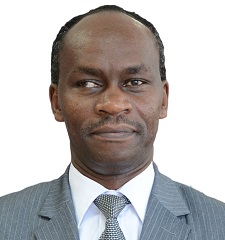

More than a century since formal education was introduced in Kenya, we are still struggling to define the right education system for our children.
With numerous commissions, task
forces, educational conferences, and parliamentary and ministry committees, we
are uncertain about what constitutes an effective curriculum.
The idea of the competency-based curriculum (CBC) was very exciting, but the implementation has been disastrous. It appears that it was never thoroughly considered.
Every day brings new, shocking pronouncements. No one seems certain about what should be and what should not.
Kenya boasts high literacy levels in Africa, with many professionals recognised and respected globally. However, there is a widespread concern that increasingly, Kenya’s education is not producing competent professionals for the labour market.
In response, policymakers seem to be making knee-jerk changes — some of which worsen the situation rather than improve it.
Shockingly, highly educated individuals who excelled in mathematics are now advocating for its removal as a core subject. Paradoxically, the same people are pushing for the majority of students to take the STEM (Science, Technology, Engineering, and Mathematics) pathway.
Perhaps they should be reminded what the 'M' in STEM stands for!
This contradictory approach reflects a deeper problem: a lack of seriousness in handling educational reforms. Kenya seems to have embraced a culture of trivialising crucial academic subjects. While we pride ourselves on a vibrant entertainment and social media industry, we struggle with scientific and technological advancements.
The solution is not to eliminate mathematics but to refine its pedagogy to make it more accessible and engaging for learners.
Competent teachers should be recruited and trained to demystify mathematics. Learners need to see their real-life applications, from financial literacy to problem-solving in daily life. Trivialising it would only weaken Kenya's capacity for innovation and economic growth.
The government's approach to addressing educational shortcomings has been to continuously alter the number of years a student spends in each level of schooling.
Since independence, Kenya has moved from the 7-4-2-3 system to 8-4-4 and now to 2-6-3-3-3. However, these changes have done little to address the core issue: the actual content of education.
The problem is not how long students spend in school but what they learn. Instead of shifting timelines, the focus should be on creating a curriculum that equips learners with modern information society skills.
A key ingredient that should be added to all education is indigenous knowledge and cultural understanding, bringing about African philosophy that cares deeply about human relationships and environmental wokeness. This would be the best antidote to market preparedness.
Education should be a tool for transforming society, yet we see an increase in poverty, emerging diseases, and social ills.
If education is the most powerful instrument for change, why is our society deteriorating? We seem to have abjectly failed to address the issues touted at independence: poverty, illiteracy and ill-health.
In many progressive societies, many bright students aspire to become teachers because they were taught by top educators.
However, in Kenya, top-grade students aim for careers in neurosurgery, aeronautical engineering, and nuclear physics —areas that, while prestigious, may not directly contribute to immediate national development needs. Teaching is often seen as a last resort for those who fail to secure "better" opportunities, a perception that needs to change.
A key factor in this challenge is teachers' remuneration. Kenyan teachers have long been among the least-paid public servants despite working under extremely tough conditions.
It is unrealistic to expect them to produce A-grade students when they are not valued. To improve its education outcomes, Kenya must attract top-tier students to the teaching profession by offering competitive salaries and incentives.
Another major obstacle to meaningful educational reform is corruption.
Corruption perpetuates dependency on politicians as parents queue for bursaries and seek favours in other ways.
Nepotism and tribalism are also cultivated in this way, as closeness to power seems to unlock financial doors for individuals or favourable sections of society.
The various bursaries issued by different political offices would be adequate to make education free for all. But to keep people chained, we make education look like it is a favour received from benevolent political gods.
Education should lead to self-reliance. Apartheid hero Nelson Mandela said education is the most powerful tool for positive social change.
We must address what is fundamentally wrong with our education that so disempowers us. Kenya cannot afford to keep experimenting with education while its future hangs in the balance.
Education discourse in the media often goes unnoticed by policymakers, yet these discussions are crucial in shaping national priorities. It is high time that meaningful reforms in education are given the attention they deserve. The time to act is now.
Augustine
Gitonga is an Academic and Communications Librarian











